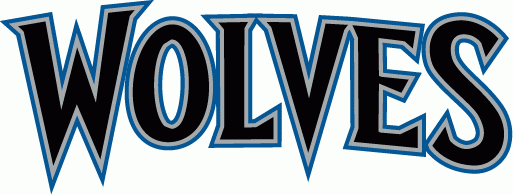 With the NBA Draft tomorrow night, you’ll hear plenty of talk about teams building or rebuilding through the draft. New Orleans has a great chance beginning with #1 pick Anthony Davis. Charlotte will look to finally get it right. Cleveland will look to add to their young nucleus of Kyrie Irving and Tristan Thompson. But the art of rebuilding through the draft is much harder than it may seem. Sure, sometimes it takes one star player like a LeBron James or Derrick Rose to turn around the fate of a franchise. Other times, years of drafting in the Top 5 still can’t turn a loser into a winner. And then, there are teams that are built predominantly through trades and free agency.
With the NBA Draft tomorrow night, you’ll hear plenty of talk about teams building or rebuilding through the draft. New Orleans has a great chance beginning with #1 pick Anthony Davis. Charlotte will look to finally get it right. Cleveland will look to add to their young nucleus of Kyrie Irving and Tristan Thompson. But the art of rebuilding through the draft is much harder than it may seem. Sure, sometimes it takes one star player like a LeBron James or Derrick Rose to turn around the fate of a franchise. Other times, years of drafting in the Top 5 still can’t turn a loser into a winner. And then, there are teams that are built predominantly through trades and free agency.
The fascinating subplot of the most recent NBA Finals was taking these two schools of thought – building through free agency versus building through the draft, and placing them head to head with the best example of each. We all know how the Heatles came together in the infamous summer of 2010, but what about how the Thunder successfully built through the draft? The “Big 3” of OKC – Kevin Durant, Russell Westbrook, and James Harden were all Top 5 picks in three consecutive years from 2007-2009. In their third year together, the trio made the NBA Finals and will be a favorite to go back and win it for several years to come.
Theoretically, this is how you rebuild a basketball team through the draft… but it’s not always that easy. Since the beginning of the 1992 season, 10 teams have held on to Top 5 picks in three consecutive seasons. That’s an incredible opportunity for a franchise, but amazingly, only Oklahoma City was able to reach the Finals with those top picks. A look at the rest of those franchises show a list of busts, broken dreams, and “what could have beens.” Below is a breakdown of those teams, who they picked, how many All Star appearances those players made with the team, the team’s best finish with at least one of the drafted players on the roster, who they could have had, and their ultimate rebuilding grade. (Note:I didn’t include the 2008-2011 Minnesota Timberwolves because it’s just too early to tell with Kevin Love, Ricky Rubio, Wes Johnson, and Derrick Williams only playing their first year together this past season. So far, it looks promising.)
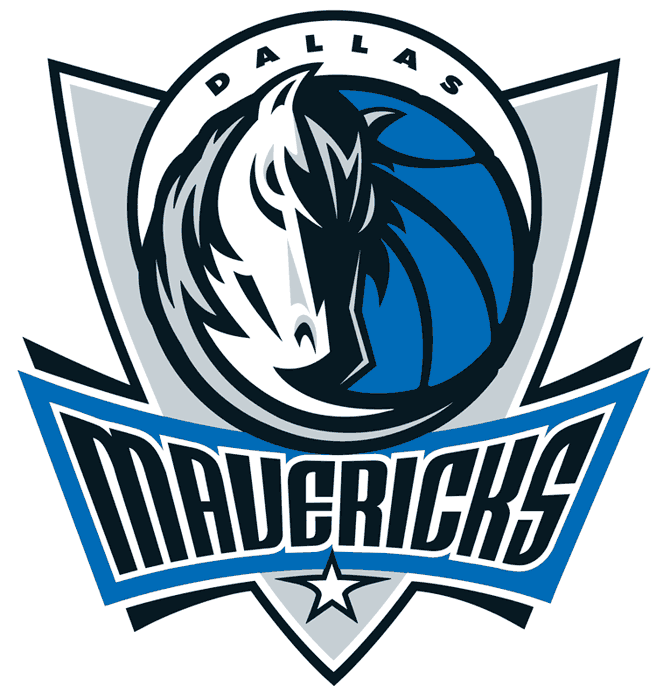 Dallas Mavericks (1992-1994)
Dallas Mavericks (1992-1994)
Who They Picked: Jimmy Jackson (4th, 1992), Jamal Mashburn (4th, 1993), Jason Kidd (2nd, 1994)
All Stars: 1
Best Finish: 2011 NBA Champions
Who They Could Have Had: Same
The prototype for rebuilding through the draft was supposed to be the early 90’s Dallas Mavericks and The Three Js. In fact, the dynamic in Dallas was very similar to the one in Oklahoma City: a hugely talented point guard and two scoring machines on the wings. For a brief time, the plan was working. In the 94-95 season, Kidd was named Rookie of the Year, Jackson scored 25.7 PPG, and Mashburn averaged 23.4 PPG. More importantly, the Mavs almost tripled their win total from 13 to 36. As if the similarities between that Dallas team and the current OKC team weren’t enough, a certain Scott Brooks was a backup guard at the time for the Mavs.
You can’t argue with the talent of the three players selected, but a total lack of chemistry buried The Three Js way too soon. The Mavs took a step back the next season to 26-56 and Kidd and Jackson were famously rumored to have feuded over Toni Braxton. The Three Js were each soon sent their separate ways as the Mavs started over. First, Kidd to Phoenix in December 1996. Then, Mashburn and Jackson were traded within 3 days of each other in February 1997 – Mashburn to Miami, Jackson to New Jersey. The Three Js met varying levels of success the rest of their careers with Kidd emerging as a transcendent future Hall of Famer. Fittingly, he returned to Dallas in 2008, made the All Star team as a Mav in 2010, and won his first championship in 2011 at age 38. Ultimately, one of The Three Js did produce a championship for the Mavericks, it just took a long and winding road to get there.
Rebuilding Grade: D from 1994-1997… A from 2008-2012
Minnesota Timberwolves (1992-1996)
Who They Picked: Christian Laettner (3rd, 1992), Isaiah Rider (5th, 1993), Donyell Marshall (4th, 1994), Kevin Garnett (5th, 1995), Stephon Marbury (4th, 1996)
All Stars: 11
Best Finish: Conference Finalists 2004
Who They Could Have Had: Tom Gugliotta (6th, 1992), Allan Houston (11th, 1993), Juwan Howard (5th, 1994), Kevin Garnett (5th, 1995), Ray Allen (4th, 1996)
Given the fact Minnesota was in their 4th year in 1992, this era of 5 straight Top 5 picks actually turned out very well for a young franchise. Of course, most of that is due to selecting a Hall of Famer, Kevin Garnett, in 1995. With KG, the T’Wolves made the playoffs 8 straight years from 1997-2004, finally reaching the conference finals that last year. But this group could have been much more. In starting a trend of Dukies in the pros, Laettner was nothing special in Minnesota, only spending 3.5 of his 13 journeyman years there. Marshall only played a year for the Wolves before being traded for Tom Gugliotta, who would make an All-Star appearance for Minny in 1997. Isaiah Rider averaged 20 PPG in Minnesota before a terrible trade sent him to Portland for the epic trio of Bill Curley, James Robinson, and Paul Grant.
Nevertheless, the one question mark from this era is what would have happened had Minny not swapped Ray Allen for Stephon Marbury in the 1996 Draft. Although Marbury was uber-talented and his pairing with Garnett produced excitement and the beginning stages of success, the two ultimately had a falling out and Marbury left town. Of course, Allen and Garnett would unite a dozen years later in Boston to win their first championship. Had Allen joined KG and a nucleus of Gugliotta, Rider, and even Christian Laettner in Minnesota, maybe they could have won that title a decade sooner.
Rebuilding Grade: B
 Vancouver Grizzlies (1996-1998)
Vancouver Grizzlies (1996-1998)
Who They Picked: Shareef Abdur-Rahim (3rd, 1996), Antonio Daniels (4th, 1997), Mike Bibby (2nd, 1998)
All Stars: 0
Best Finish: Never made playoffs
Who They Could Have Had: Kobe Bryant (13th, 1996), Tracy McGrady (9th, 1997), Paul Pierce (10th, 1998)
The franchise slogan for the Vancouver Grizzlies might as well have been “the grass is always greener…” This trio never played a game together for the Grizzlies as Daniels was traded after his rookie season to San Antonio. He won a championship there. The Grizzlies had to pick a point guard again next year with Bibby, who was solid for the Grizzlies… but better in Sacramento after being dealt for Jason Williams. Abdur-Rahim was a franchise stalwart, but made his first All-Star appearance after being traded to Atlanta for a hodgepodge of wasted dollars. As sad as it is, these were the glory days for the Vancouver Grizzlies. In 1999, the Steve Francis debacle took place. In 2001, the team was off to Memphis. Had Vancouver been able to get just one of players like Kobe Bryant, Ray Allen, Tracy McGrady, Vince Carter, Paul Pierce, or Dirk Nowitzki, who knows how history would have been different.
Rebuilding Grade: R for relocation… that’s bad.
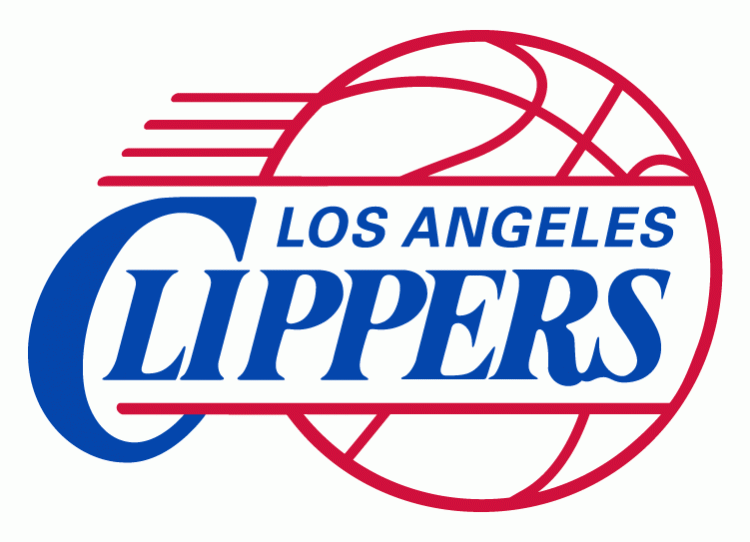 Los Angeles Clippers (1998-2000)
Los Angeles Clippers (1998-2000)
Who They Picked: Michael Olowokandi (1st, 1998), Lamar Odom (4th, 1999), Darius Miles (3rd, 2000)
All Stars: 0
Best Finish: Never made playoffs
Who They Could Have Had: Dirk Nowitzki (9th, 1998), Lamar Odom (4th, 1999), Jamal Crawford (8th, 2000)
For the Clippers, this actually wasn’t so bad. Believe it or not, there was a time in the pre-Blake Griffin era the Clippers were cool. And, it was largely because of Lamar Odom and Darius Miles. The Clippers were a young, high-flying team and improved 30 wins in 3 years from 1999-2001. However, the nucleus never lasted to reach their potential. Miles was gone after two years for the ground and pound game of Andre Miller. Odom left in free agency for the Miami Heat after 4 good years. And of course, there’s one of the great flops in NBA Draft history – Michael Olowokandi. Given the depth in talent in the 1998 Draft (Nowitzki, Pierce, Carter, Jamison, Bibby), this miss looks more awful as time goes by. Olowokandi averaged 8.3 PPG over the span of his career. It wasn’t until 2006 and all these players were long gone when the Clippers finally reached the playoffs.
Rebuilding Grade: C-
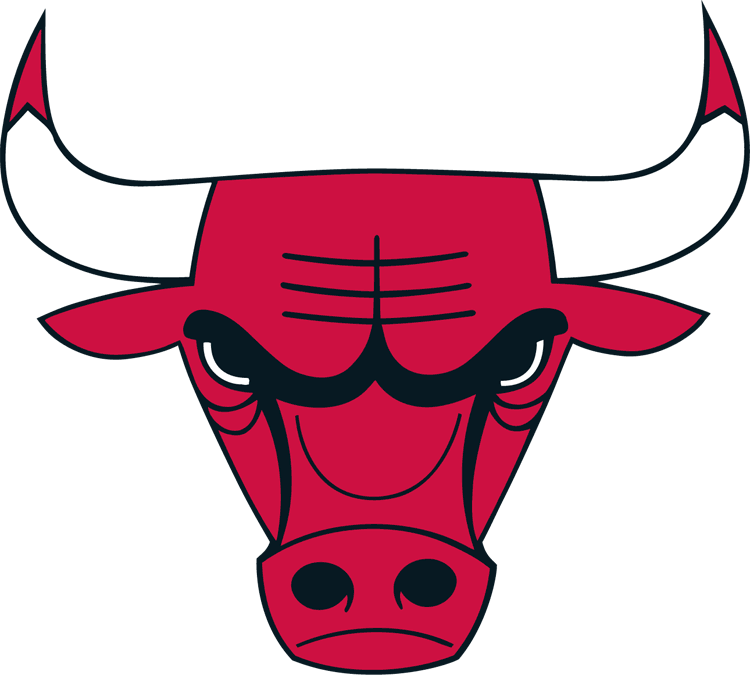
Chicago Bulls (1999-2002)
Who They Picked: Elton Brand (1st, 1999), Marcus Fizer (4th, 2000), Tyson Chandler/Eddy Curry (2nd/4th, 2001), Jay Williams (2nd, 2002)
All Stars: 0
Years Together: First round of playoffs, 2005-2006
Who They Could Have Had: Baron Davis (3rd, 1999), Mike Miller (5th, 2000), Joakim Noah (9th, 2007), Pau Gasol (3rd, 2001), Amare Stoudemire (9th, 2002)
Perhaps the most interesting… and depressing of these groups of players are the turn of the century Bulls. After picking Elton Brand 1st overall in 1999, the Bulls traded him for the 2nd overall pick in 2001 after 20 point seasons in his first two years. Chicago then used that 2nd pick on Tyson Chandler and the 4th pick on Eddy Curry – two high schoolers. Ironically, both Curry and Chandler would indeed win a championship, just for different teams in extremely different circumstances. Chandler was a key defensive cog in Dallas. Curry made Dexter Pittman feel better about himself in Miami. Marcus Fizer played just 6 seasons in the league, 4 of them in Chicago. Jay Williams played 54 games his rookie season and showed promise. Then, a motorcycle accident ended his career. With those misses and unfortunate events, it was trading Brand (a future 2 time All-Star) for Chandler and building around a pair of high schoolers that set the Bulls back a decade… until another #1 pick came along in 2008.
Rebuilding Grade: D
 Charlotte Bobcats (2004-2006)
Charlotte Bobcats (2004-2006)
Who They Picked: Emeka Okafor (2nd, 2004) Raymond Felton (5th, 2005), Adam Morrison (3rd, 2006)
All Stars: 0
Best Finish: First round of playoffs, 2010
Who They Could Have Had: Andre Iguodala (9th, 2004), Andrew Bynum (10th, 2005), Rajon Rondo (21st, 2006)
How could Michael Jordan be the best NBA player of all-time… and one of the worst ever at drafting players? It’s inconceivable. Imagine Socrates being unable to tutor Plato, or Shakespeare spawning Rick Reilly. It just doesn’t make sense. But, you can’t blame Jordan entirely for all the Bobcats failings. No, he only gets credit for Adam Morrison out of this bunch (although the Bobcats suddenly want you to think MJ wasn’t responsible for that flop6 years after the fact). Okafor and Felton’s time in Charlotte has come and gone with the Cats in rebuilding mode once again. They even have new unisto prove it! Even though Emeka Okafor averaged a double double his first 5 years in Charlotte, the only playoff appearance in franchise history came after his trade to New Orleans. Felton left soon thereafter. To be fair to Charlotte, 2004 was their first NBA season. However, considering the Bobcats just finished with the worst record in NBA history when at least one of these guys should have still been logging key minutes, this has to rank as a major failure.
Rebuilding Grade: F
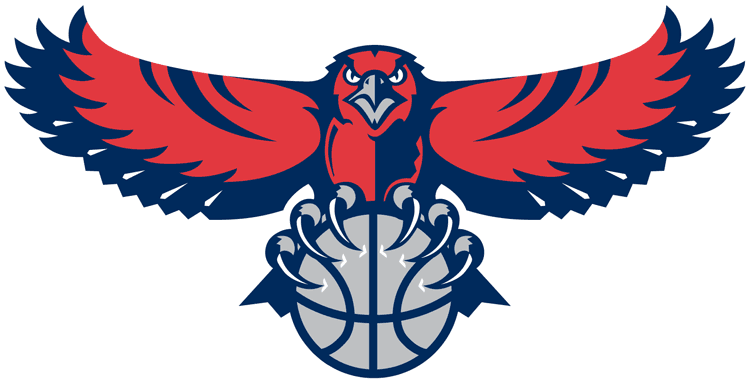 Atlanta Hawks (2005-2007)
Atlanta Hawks (2005-2007)
Who They Picked: Marvin Williams (2nd, 2005), Shelden Williams (5th, 2006), Al Horford (3rd, 2007)
All Stars: 2
Best Finish: Second round of playoffs, 2009-2011
Who They Could Have Had: Chris Paul (4th, 2005), Rudy Gay (8th, 2006), Al Horford (3rd, 2007)
The Hawks are one of the most fascinating teams in professional sports. For the last five seasons, they have teetered on the edge between true contenders and mediocre middlers – making the playoffs each year, but never getting beyond the second round. Much of that is due to their decidedly average job drafting in the Top 5. One hit – Al Horford and his 2 All-Star appearances. One average player who ultimately became a disappointment – Marvin Williams, averaging 10 PPG the last 3 years. One bust – Shelden Williams, now on his 7th NBA team averaging 4/4 over his career. He was gone from Atlanta after the 2008 season. If only this Hawks team had a superstar player like Chris Paul from one of these draft classes that could push them over the hump. If only…
Rebuilding Grade: C
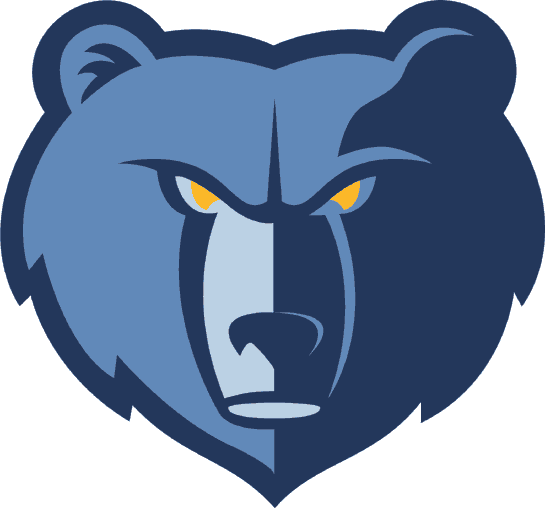 Memphis Grizzlies (2007-2009)
Memphis Grizzlies (2007-2009)
Who They Picked: Mike Conley (4th, 2007), OJ Mayo (3rd, 2008), Hasheem Thabeet (2nd, 2009)
All Stars: 0
Best Finish: Second round of playoffs, 2011
Who They Could Have Had: Joakim Noah (9th, 2007), Russell Westbrook (4th, 2008), James Harden (3rd, 2009)
Conley and Mayo have been solid contributors for a Grizzlies team that reached the playoffs each of the last two seasons, both averaging about 12 points last year. However, Hasheem Thabeet and his 296 career points in three years has been one of the biggest busts in the last decade of the NBA Draft. Thabeet couldn’t even make it through 2 seasons in Memphis, being traded to Houston for Shane Battier and then sent packing to Portland between time in the D-League. Even though the Grizzlies found a hidden gem in Marc Gasol, that Thabeet miss will haunt the franchise.
Rebuilding Grade: C-
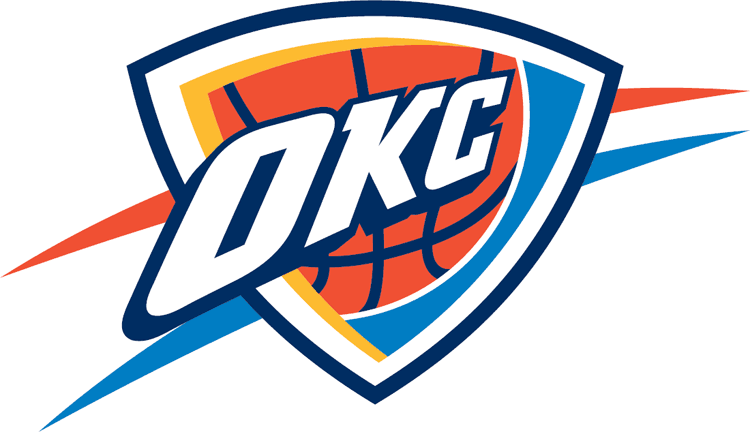 Oklahoma City Thunder (2007-2009)
Oklahoma City Thunder (2007-2009)
Who They Picked: Kevin Durant (2nd, 2007), Jeff Green (5th, 2007), Russell Westbrook (4th, 2008), James Harden (3rd, 2009)
All Stars: 5
Best Finish: 2012 NBA Finalists
Who They Could Have Had: Same
No team may has done a better job hitting on draft picks in recent NBA history than the Oklahoma City Thunder and GM Sam Presti. From 20-62 in 2007 to the NBA Finals. Of course, the Thunder got lucky when Kevin Durant was available with the #2 pick in 2007 instead of staring at a situation like this year when there is no clear #2 pick behind Anthony Davis. However, the Thunder also found an All-Star PG in Russell Westbrook and the league’s best 6th man in James Harden. Oh, and they turned Jeff Green around for Kendrick Perkins, another key starter. As you can see from the rest of the list, no team was able to make a successful pick on even two of their three Top 5 picks in consecutive years. OKC did it with 3 of 4 and got a key starter with the fourth. Durant, Westbrook, and Harden scored 67% of the team’s points in their Western Conference Championship season and a future title is likely. That’s how you rebuild a franchise through the draft.
Rebuilding Grade: A

